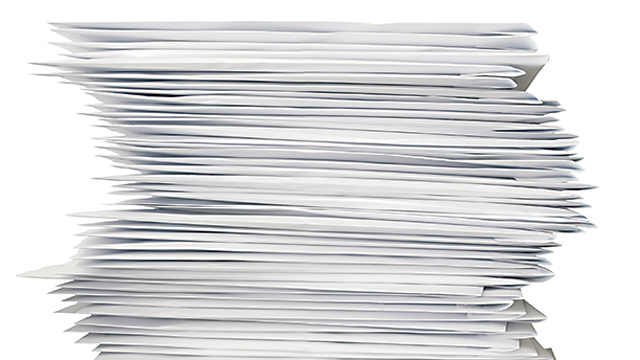If your home is anything like mine, it might feel like you’re constantly trying to prevent what I call the paper pile-up. Every day, it seems that more paper is coming in, and not enough is going out. Before we go too far with our spring cleaning, it’s important to remember that there are some documents we should keep. But which ones? And for how long?
Ultimately, it’s a personal decision dependent on several factors, including how much storage space you have, the medium in which your files are kept, and how much time you have for filing and other organizational tasks. Personally, I am notorious for hanging onto more paper than necessary – from store receipts for family Christmas gifts to checkbook ledgers that are several years old. This spring, however, I’m turning over a new leaf. Care to join me?
What to Keep for a Few Months
In today’s electronic age, many statements or payment records can be accessed online. However, some experts suggest keeping copies of utility bills, ATM and bank receipts, and sales receipts for minor purchases for approximately one to three months.
What to Keep for One Year
In this category, you’ll want to keep information you’ll need at the end of your fiscal year – usually for tax time. For example, it’s a good idea to keep copies of all pay stubs and compare the YTD details on your last paycheck of the year with what is shown on your W-2. Again, many employers offer you the ability to access pay stubs online. As an extra measure, you can download your own copies and store them privately in case electronic access through your employer is interrupted due to a job change on your part or changes in company management. You’ll also want to keep copies of your mortgage statements, insurance records, bank statements, and if you still use them, checkbook ledgers.
What to Keep Indefinitely
Keep sales receipts and purchase agreements for larger items such as vehicles, furniture, televisions, or laptops for as long as you own the item. Also, if you purchase an extended warranty for a larger item, be sure to keep the warranty information together with the sales receipt. You may have noticed that the ink on some sales receipts can fade or disappear over time. This is common when retailers print receipts using thermal ink, but it can be a real problem when you finally track down the receipt, only to realize that you can’t see the information. A good way to prevent losing the data from your sales receipt is to either scan or make a photocopy of your actual receipt right after your purchase before filing it away. Some life-hackers have suggested that carefully using a hair dryer to gently warm the faded receipt may cause the ink to reappear.
Other items to keep indefinitely and safeguard include: real estate deeds; home improvement documents; automobile titles; complete annual state and federal tax returns with your W-2s or 1099s; estate planning documents such as wills, trusts, power of attorney documents; insurance policies with beneficiary designations; retirement account statements; and year-end statements for any investment accounts. These documents should be stored securely in a location known to your immediate relatives or other trusted individuals.
Finally, in addition to the items listed above, it’s also a good idea to keep records for anything you may have to substantiate later. For example, if you have a home or vehicle warranty that requires you to obtain regular maintenance on the protected item, you’ll want to keep all records and receipts showing service dates and maintenance. This will help you be prepared to show the warranty company you have complied with the maintenance requirements, and could speed up the processing of a claim.
How to Dispose of Sensitive Documents
Now that we’ve identified what to keep and for how long, one quick note before you start tossing those old documents into your recycle bin: For protection against identity theft, be sure to shred anything that has personally identifiable information, such as names and addresses, social security numbers, and financial or medical information. Keep an eye out for on-site shredding events hosted by credit unions, the CVWMA (the recycling people), or other reputable organizations that allow you to easily and securely dispose of sensitive documents. As an additional incentive, many shredding companies also recycle the shredded remains of your documents.
By following these suggestions, we may finally be able to put an end to the paper pile-up.




